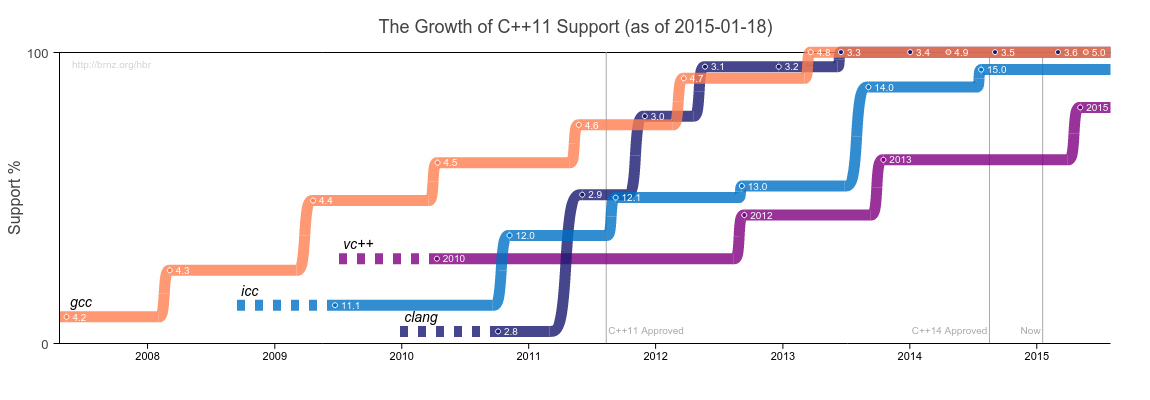Snail: Continuation-ready algorithms from STL algorithms -- Manu Sánchez
Monads in use, finally!!
Snail | Continuation-ready algorithms from STL algorithms
by Manu Sánchez
From the article:
Snail is my try to get a continuation-ready set of algorithms to operate on C++ containers, but instead of reinventing all the algorithms, addapting them through a continuation monad (or something resembling a continuation monad).





 Another modern C++ compiler released by IBM, based on a modern foundation:
Another modern C++ compiler released by IBM, based on a modern foundation: Fresh on vcblog:
Fresh on vcblog: Announced today, just in time for the new year:
Announced today, just in time for the new year: